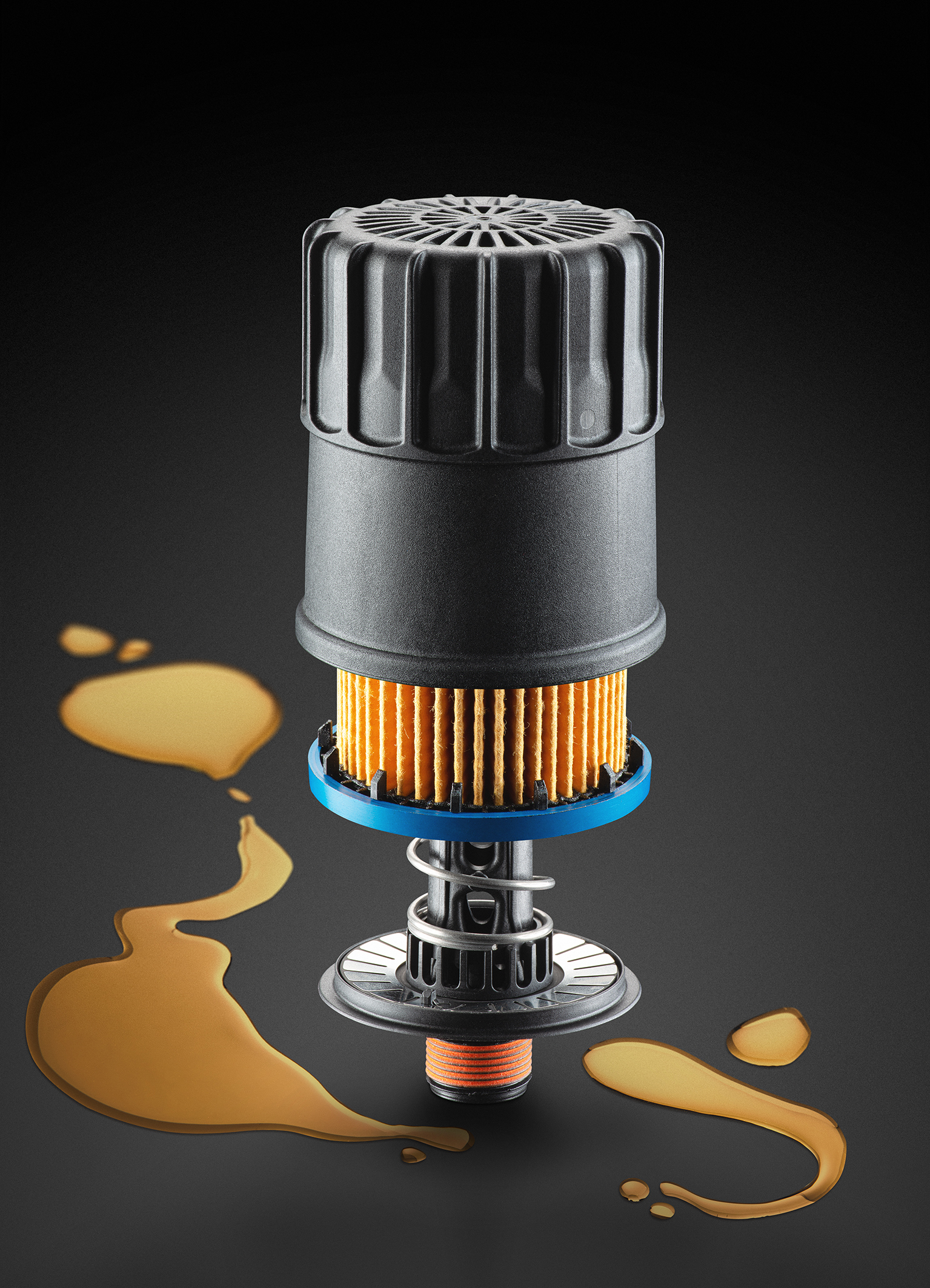
BASF and automotive company Hengst have developed what they say is the world’s first reusable plastic spin-on oil filter module for cars.
According to the companies, the Blue.on filter, which is made from BASF’s Ultramid Structure LFX long glass fiber polyamide, does not need to be replaced during filter change, making it a more sustainable alternative to conventional spin-on modules made from metal.
Each year, about two billion oil filters are replaced and disposed, and during oil change, the entire filter unit is exchanged, and the residual oil is disposed as hazardous waste, with a large amount of additional litter generated, BASF said. Blue.on consists of three components: a filter housing, a connection element to the engine and a filter element, and during oil change, only the filter is replaced, whilst the module completely made of plastic can be used for the entire service life of the engine. At the end of the car’s life cycle, all components can almost completely be recycled, according to the companies. The material also reportedly leads to a weight reduction of the module of 23% when compared to its metal counterpart.
BASF says that its Ultramid Structure A3WG12 LFX long glass fiber-reinforced polyamides have a low tendency to creep as well as reduced shrinkage and warpag., while the long glass fibers and changed fiber orientation help form a dimensionally stable part. During the injection-molding process the glass fibers form a three-dimensional network in the part.
This story uses material from BASF, with editorial changes made by Materials Today. The views expressed in this article do not necessarily represent those of Elsevier.




